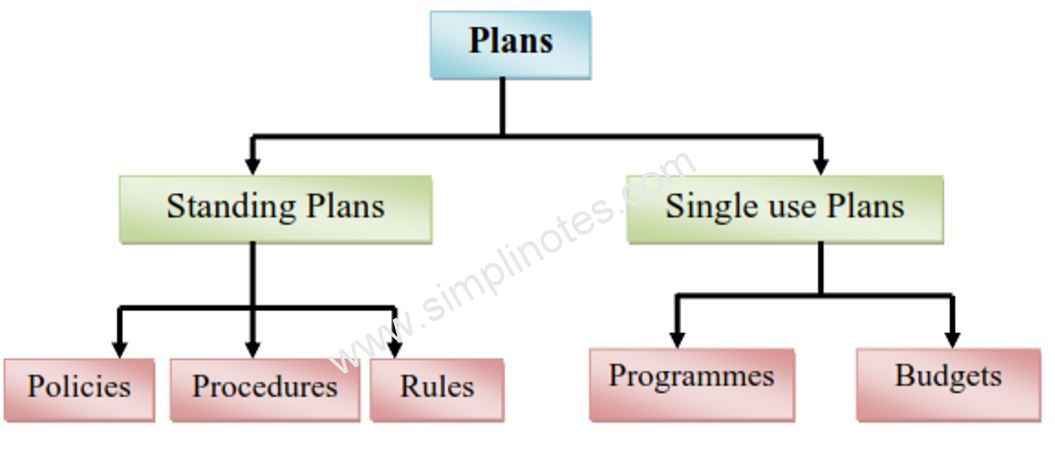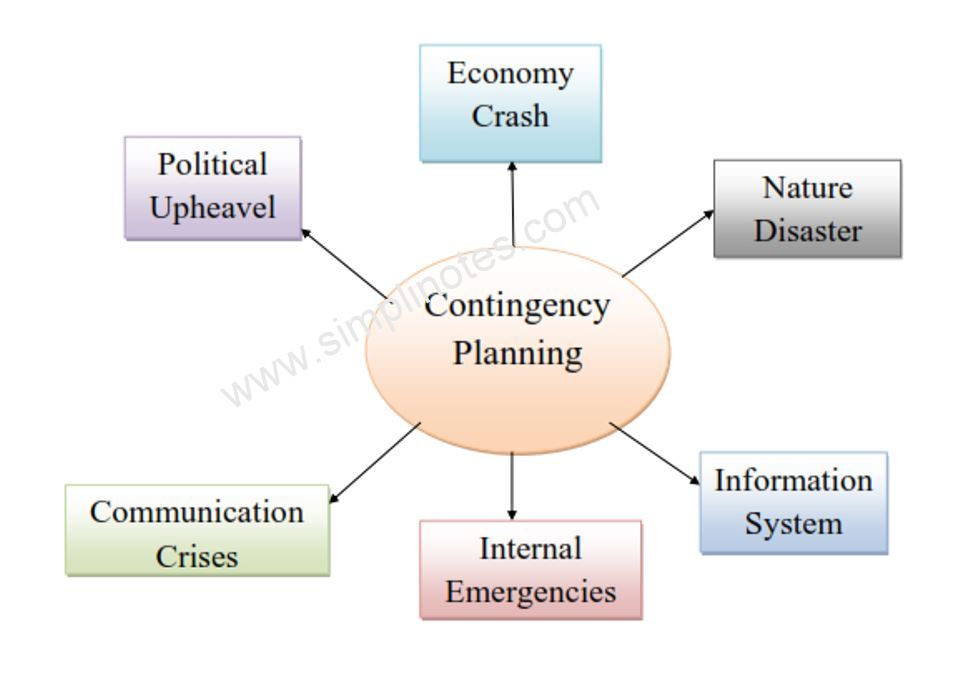Types of Plans
1. Standing Plans and Single Use Plans
(i) Standing Plans
- Long term approachable plan which is prepared by the top level managers of organization.
- Standing Use Plans are based upon the primary objectives of organization
- Examples of such plans are organizational mission and long term objectives, strategies, policies, procedures and rules.
(ii) Single Use Plan
- Are relevant for specified time and after the time is over thee plans are again formulated for next period.
- Generally these plans are derived from standing plans.
- Examples of such plans are projects, budgets, quotas, targets etc.
2. Strategic and Operational Plans
These plans are derived from standing plans; strategic plans-major ones, define the long term course of an action; Operational plans-Projects, budgets, minor plans mission/purpose-objectives-strategies-policies procedures/rules programmes /projects-budgets- quotas/targets.
(i) Strategic Plan
- Strategic plan begins with the organization’s mission.
- It is an outline of steps designed with the goals of the entire organization as a whole in mind.
- It looks ahead over the next two, three, five years to move the organization, where it currently is to where it wants to be.
- It is prepared by, top management and become the framework for the low level management.
(ii) Operational Plan
- It is the one that a manager uses to accomplish his/her job responsibilities.
- It is done at the divisional and sectional levels and majority there is involvement of supervisors, team leader and managers at different departments.
- Operational plans are designed to support tactical plans.
- Operational plans are ongoing or continuous plans.
3. Tactical and Contingency Plans
(i) Tactical Plan
- It is concerned with what and how the lower level units within each division must do.
- It is concerned with shorter time frames and narrower scopes than strategic plans.
- Short term goals are considered by Tactical Plan, and their time of span is not more than one year.
- It is the responsibility of middle level manager to identify specific tactical actions.
(ii) Contingency Plans
- It is the plan to cope up the unpredictable changes of environment and uncertainty.
- These plans are the result of intelligence of managers
- An intelligent manager always remain ready to face the challenges and keeps other options also open.


